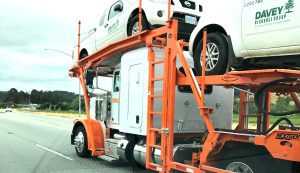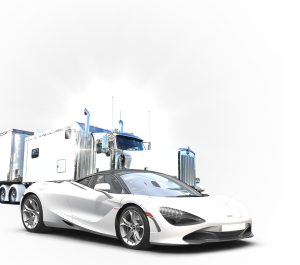Introduction To Vehicle Modifications And Accessories
Vehicle modifications and accessories have long been a popular way for car enthusiasts to personalize their rides, enhance performance, and improve functionality. From altering the aesthetics with custom paint jobs and body kits to upgrading the engine for better horsepower, the spectrum of modifications is vast. Accessories like roof racks, advanced audio systems, or GPS units also play a significant role in tailoring a vehicle to meet specific needs or preferences.
However, while these changes can provide a sense of individuality and improved utility, they are often subject to various regulations designed to ensure safety, environmental standards, and compliance with legal frameworks.
Understanding these restrictions is crucial for anyone considering vehicle modifications or adding accessories. Regulations can vary significantly from one region to another and may encompass aspects such as emissions control, noise levels, lighting systems, tire specifications, and structural integrity. For example, certain aftermarket exhaust systems might be deemed too loud or fail to meet emissions standards in specific areas. Similarly, tinting windows beyond a certain darkness level could result in fines or failed inspections.
Moreover, safety considerations are paramount; modifications that affect the vehicle’s handling or crashworthiness can pose serious risks not only to the driver but also to other road users. In some cases, insurance coverage might be impacted by unauthorized changes if they contribute to an accident.
In this context of regulatory scrutiny and safety concerns lies an intricate balance between personalizing one’s vehicle and adhering to laws designed for public welfare. This intersection highlights the importance of being well-informed before embarking on any modification projects.
Federal Regulations On Vehicle Modifications
Federal regulations on vehicle modifications in the United States are primarily designed to ensure safety, environmental compliance, and maintain the integrity of vehicular standards. The National Highway Traffic Safety Administration (NHTSA) plays a pivotal role in setting these regulations, which cover a wide array of modifications ranging from engine enhancements to cosmetic alterations.
One significant area regulated by federal law is emissions control. The Environmental Protection Agency (EPA) mandates that any changes to a vehicle’s exhaust system must comply with the Clean Air Act. This means that aftermarket parts like catalytic converters or mufflers must meet stringent emissions standards to prevent increased pollution. Non-compliance can result in hefty fines and legal action.
Safety is another critical aspect addressed by federal regulations. Modifications affecting a vehicle’s structural integrity, such as altering suspension systems or installing aftermarket bumpers, must adhere to guidelines ensuring they do not compromise crashworthiness or occupant protection. The Federal Motor Vehicle Safety Standards (FMVSS) outline specific requirements for various components, including lights, brakes, and tires.
Additionally, there are restrictions on electronic modifications that could interfere with essential systems like Anti-lock Braking Systems (ABS) or Electronic Stability Control (ESC). Unauthorized tampering with these systems can lead to severe safety risks and legal consequences.
While customization is part of car culture in the U.S., it is crucial for vehicle owners and modifiers to be aware of and comply with these federal regulations. Ensuring compliance not only avoids legal repercussions but also contributes to broader public safety and environmental conservation efforts.
State-Specific Laws And Restrictions
State-specific laws and restrictions on vehicle modifications and accessories vary widely across the United States. These regulations are designed to ensure road safety, environmental protection, and adherence to state-specific standards. For example, California has stringent emissions regulations under the California Air Resources Board (CARB). Any modifications that alter a vehicle’s emission system must be CARB-approved. This means aftermarket parts like exhaust systems and air intakes must meet specific emissions criteria.
In contrast, states like Texas have more lenient modification laws but still enforce safety standards. Lift kits, for instance, are permitted but cannot raise the bumper more than a certain height above the ground. Similarly, window tinting laws differ significantly; while Florida allows a certain degree of darkness for both front and rear windows, New York has stricter limits on how much light must pass through tinted windows.
Additionally, states impose varied restrictions on lighting modifications. Underglow lights might be allowed in some states but are often restricted in color or placement to avoid confusion with emergency vehicles. Pennsylvania prohibits any red or blue lights visible from the front of a vehicle for this reason.
Sound systems also face regulation; many states have noise ordinances that restrict excessive sound levels from car stereos to minimize noise pollution and prevent disturbances in residential areas.
Understanding these state-specific laws is crucial for anyone considering modifying their vehicle. Violating these regulations can result in fines or even impoundment of the vehicle until it complies with local laws. Therefore, it’s always advisable to consult your state’s Department of Motor Vehicles (DMV) or equivalent authority before making any substantial changes to your vehicle’s appearance or performance capabilities.
Safety Standards For Modified Vehicles
When modifying a vehicle, adhering to safety standards is paramount to ensure that the alterations do not compromise the integrity and safety of the vehicle. Various regulatory bodies have established guidelines that must be followed when making modifications, whether they are for aesthetic purposes or performance enhancements.
One critical aspect of these standards is ensuring that any modifications do not interfere with the vehicle’s fundamental safety features. For example, changes to suspension systems must maintain proper alignment and handling characteristics to prevent instability during operation. Similarly, brake system upgrades should meet or exceed the original equipment manufacturer’s (OEM) specifications to ensure reliable stopping power.
Lighting modifications are another area where strict adherence to safety standards is required. Altering headlights, taillights, or signal lights must comply with visibility and brightness regulations to avoid impairing other drivers’ vision or reducing your own visibility on the road.
In addition, structural modifications such as roll cages or chassis reinforcements need to be carefully designed and installed. These changes should enhance passenger protection without causing new hazards in case of an accident. It’s also vital that all materials used in such modifications meet industry safety standards for strength and durability.
Furthermore, aftermarket accessories like roof racks or tow hitches must be securely attached and rated for their intended loads. Improper installation can lead to accidents caused by falling objects or unbalanced weight distribution.
Ultimately, while personalizing a vehicle can enhance its functionality and appearance, it is crucial that all modifications comply with established safety guidelines set forth by authorities such as the Department of Transportation (DOT) or equivalent agencies in other countries. This ensures not only your own safety but also that of others sharing the road.
Emissions And Environmental Compliance
When it comes to vehicle modifications or accessories, one of the most critical areas of regulation is emissions and environmental compliance. Governments around the world have established strict standards to control the release of pollutants from motor vehicles, aiming to reduce air pollution and its associated health risks. In many regions, any modification that affects a vehicle’s exhaust system or engine performance must adhere to these stringent emissions standards.
For instance, in the United States, the Environmental Protection Agency (EPA) enforces regulations under the Clean Air Act. Any aftermarket part that impacts emissions—such as catalytic converters, exhaust headers, or even certain performance chips—must be certified by the EPA or an equivalent state authority like California’s Air Resources Board (CARB). Non-compliant modifications can result in significant fines for both installers and owners.
Similarly, in Europe, vehicles must meet specific Euro emission standards. Modifications that alter a vehicle’s emission characteristics are closely scrutinized during periodic inspections known as MOT tests in the UK or TÜV inspections in Germany. Failure to comply with these regulations can lead to penalties and may necessitate reverting the vehicle back to its original configuration.
These regulations serve not just as a means of protecting public health but also as a way of ensuring fair competition among automotive manufacturers and aftermarket parts producers. By maintaining consistent environmental standards, regulatory bodies aim to encourage innovation while safeguarding ecological integrity.
In summary, while customizing your vehicle can be an exciting endeavor, it’s imperative to ensure that any changes made comply with local emissions and environmental laws. Ignoring these requirements not only poses legal risks but also contributes negatively to environmental sustainability efforts.
Legal Consequences Of Non-Compliant Modifications
When it comes to vehicle modifications, ensuring compliance with local, state, and federal regulations is paramount. Non-compliant modifications can lead to a range of legal consequences that extend beyond mere inconvenience. One of the most immediate repercussions is the imposition of fines. Law enforcement agencies regularly conduct inspections and checkpoints to identify vehicles that do not meet legal standards. Drivers found in violation may face hefty financial penalties, which can escalate with repeated offenses.
In more severe cases, non-compliant modifications can lead to the revocation of your vehicle’s registration. This means you could be legally prohibited from driving your car until it meets regulatory standards. The process to re-register such a vehicle often involves significant expense and time investment, including the need for professional inspections and repairs.
Insurance companies also play a critical role in this landscape. If your vehicle has unauthorized modifications, insurers may deny coverage altogether or refuse to honor claims related to accidents or damages. This lack of coverage can leave you financially vulnerable in the event of an incident.
Moreover, non-compliant modifications can have safety implications that might result in criminal charges if they contribute to accidents causing injury or death. For example, tampering with emission control systems not only violates environmental laws but also endangers public health.
Lastly, resale value and marketability are significantly impacted by illegal modifications. Prospective buyers are often wary of purchasing vehicles that could lead them into legal trouble or require costly adjustments for compliance.
In summary, while customizing a vehicle offers personal satisfaction and aesthetic appeal, understanding and adhering to legal requirements is crucial to avoid substantial legal consequences.
Insurance Implications Of Vehicle Modifications
When considering vehicle modifications or accessories, it is crucial to understand the potential insurance implications that come with these changes. Modifying a vehicle can affect everything from premium costs to coverage eligibility, and overlooking these factors could lead to financial headaches down the road.
Firstly, insurance companies assess risk based on the vehicle’s original specifications. Any alterations—be it performance enhancements like turbochargers or aesthetic modifications such as custom paint jobs—can change their risk assessment. For instance, performance upgrades might make a vehicle more prone to accidents or theft, leading insurers to increase premiums accordingly. On the other hand, some safety-related modifications like advanced braking systems might actually lower premiums by reducing perceived risk.
Another critical aspect is policy disclosure. Failing to inform your insurer about significant modifications can result in severe consequences. In the event of an accident or claim, undisclosed alterations could be grounds for denying coverage altogether. This underscores the importance of comprehensive communication with your insurance provider whenever you modify your vehicle.
Additionally, certain modifications may necessitate specialized insurance policies. Standard auto insurance may not cover high-value customizations such as bespoke interiors or state-of-the-art sound systems. Owners may need to seek out additional coverage options tailored specifically for modified vehicles.
Understanding these insurance implications is essential for anyone considering altering their vehicle. By proactively engaging with your insurer and understanding how different modifications impact your policy, you can ensure that you’re adequately covered while enjoying your personalized ride.
How To Ensure Your Modifications Are Legal
When considering modifications or accessories for your vehicle, ensuring that these alterations are legal is paramount to avoid fines, penalties, and potential safety hazards. The first step in this process involves familiarizing yourself with local regulations and laws regarding vehicle modifications. These can vary significantly depending on your location, so consulting your local Department of Motor Vehicles (DMV) or equivalent authority is essential.
Beyond understanding the legal framework, it’s crucial to stay updated with any changes in legislation that might affect your modifications. Regulations can evolve, reflecting new safety standards or environmental concerns, and staying informed will help you remain compliant.
Consulting with professionals who specialize in vehicle modifications can provide valuable insights into what is permissible. These experts often have up-to-date knowledge of regulatory requirements and can advise on both the legality and practicality of various alterations. Additionally, they can assist in installing parts correctly to ensure they meet all necessary standards.
Documentation plays a key role as well. Keeping detailed records of all modifications—including receipts, installation guides, and certification documents—can serve as proof that your vehicle complies with the law if questioned by authorities.
Lastly, consider the broader implications of your modifications on vehicle performance and safety. Even if a modification is legal, it should not compromise the integrity or functionality of your vehicle. Regular inspections by certified mechanics can help ensure that all components work harmoniously together without posing any risks.
By diligently adhering to these steps—researching regulations, consulting experts, maintaining documentation, and prioritizing safety—you can confidently modify your vehicle while staying within the bounds of the law.



